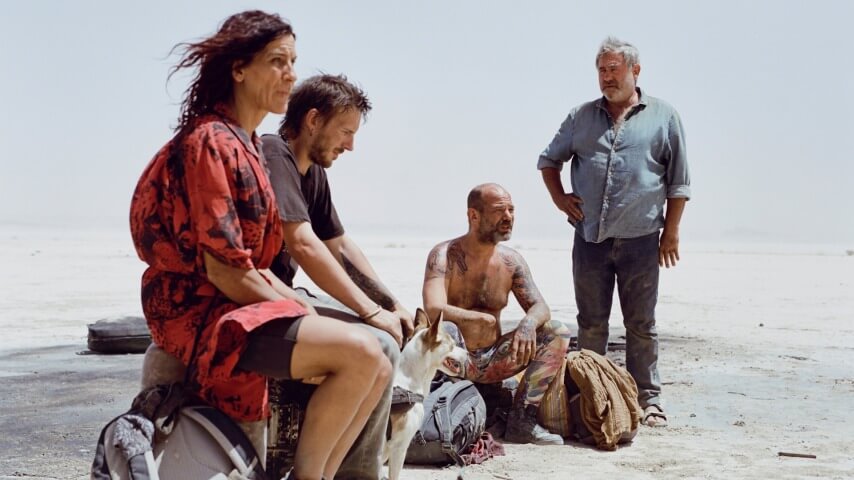According to the synopsis for Sirāt, “A father (Sergi López) and his son arrive at a rave deep in the mountains of southern Morocco. They are searching for Mar—daughter and sister—who vanished months ago at one of these endless, sleepless parties. Surrounded by electronic music and a raw, unfamiliar sense of freedom, they hand out her photo again and again. Hope is fading, but they push through and follow a group of ravers heading to one last party in the desert. As they venture deeper into the burning wilderness, the journey forces them to confront their own limits.”
Speaking with Film Comment in May, Laxe described Sirāt (the name of which references the Islamic bridge that travels over hell to get to heaven) as “a reflection of the dialectic of myself.” The filmmaker follows the Quran, “But at the same time, I like techno. So in this film I’m expressing the sensitivity of a human being in the last days of humanity—trying to trust in himself and having the tools, but also having too much ego to do it. I start from the basis that we—all of us—are broken. Ravers know this,” he explained. “In the end, this is a community of mutilated people, and this guy, this outsider, will touch the bottom of himself.”
Besides López, most of the film’s actors are nonprofessionals, a move which required Laxe “to prove to reality that [his] intention [was] noble.” Some of the ravers got to attend the Cannes premiere, “and they gave me the best, most touching feedback. Because we’re talking about their lives out there. They really felt represented for the first time,” the director shared. “For me, as a filmmaker in Cannes, that’s the Palme d’Or: the fact that I really connected with them. I’m happy the film is being understood—or felt.”














![HBO teases new Euphoria, Larry David, and much more in 2026 sizzle reel [Updated]](https://img.pastemagazine.com/wp-content/avuploads/2025/12/12100344/MixCollage-12-Dec-2025-09-56-AM-9137.jpg)


























